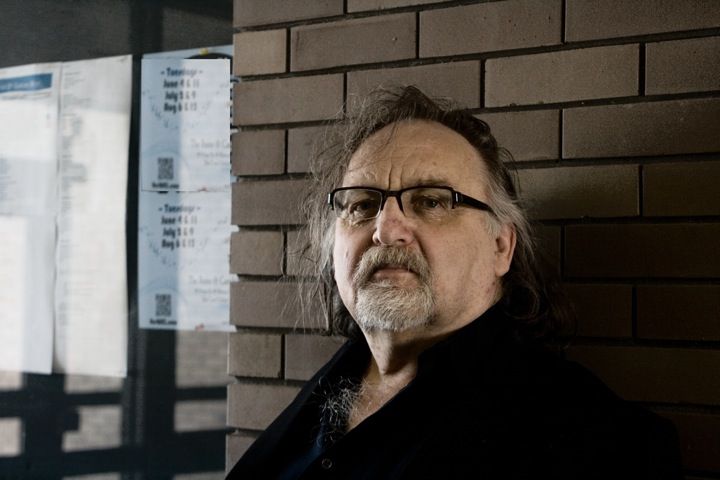A recent orchestral piece by Brian Ferneyhough bears the German title, "Plötzlichkeit," a term which can be roughly translated as "suddenness." In the piece, radically disjunct gestures emerge from all corners of the orchestra, both disparate solo lines and dynamic tuttis, each successive gesture obliterating the last. The term plötzlichkeit seems to be not only a fitting description of the unrestrained energy of this piece, but of much of the composer's oeuvre. Ferneyhough's music, (in)famous for its density, complexity, and the demands it puts on its performers, seems to exist in a perpetual state of plötzlichkeit—that is, in a perpetual state of lacking a perpetual state, of being constantly interrupted, manipulated, suspended, or superseded. The intricacy of pieces like Superscriptio, Lemma-Icon-Epigram, and Etudes Transcendantales places the performers (and, indeed, the audience) in a situation in which the demands of each gesture leave them, in the composer's words, "in a constant state of 'surprise attack', as the horizon of memory closes around them." Without the ability to rely on their memories, performer and audience are trapped in an eternal present, or rather, in an endless succession of divergent presents, a state of intense plötzlichkeit.
The preface to Ferneyhough's early flute solo, Cassandra's Dream Song elaborates on this tension between notated complexity and the difficulty of execution: "A valid realization will only result from a rigorous attempt to reproduce as many of the textural details as possible: such divergencies and 'impurities' as then follow from the natural limitations of the instrument itself may be taken to be the intentions of the composer." In later pieces, as noted by Paul Griffiths, such "divergencies and impurities" are as much a result of the performer's constant state of 'suddenness' as they are of the instrument's own limitations. Ferneyhough is therefore not a composer of "complex" notational gestures, but rather a composer of dynamic energies and states of being. In fact, his music calls into question the very ontology of classical music: his pieces do not exist on the written page, nor in the frantic animation of its realization but in, as he puts it, "that realm of non-equivalence separating the two."
We are thrilled that Ferneyhough will be joining the composition faculty at this year's June in Buffalo, and we're looking forward to hearing his works performed by some of the most skilled players in the field. Among the composer's pieces which will be heard at this year's festival are the densely polyphonic Bone Alphabet (1992) for solo percussion (to be played by SIGNAL Ensemble's Bill Solomon) and the virtuosic violin solo, Unsichtbare Farben, which will be performed by its dedicatee, Irvine Arditti.
 |
| Brian Ferneyhough at JiB 2013 |
There is, of course, far more to the composer's work than simple performer crazy-making. Perhaps the greatest strength of Ferneyhough's music is the way it recaptures and re-imagines expression itself. While much Post-War music used complexity and systemization as ways to bypass expression, Ferneyhough uses these same devices in its service. For him, "texture and structure are the two vehicles of expressive form", and works like Bone Alphabet and Unsichtbare Farben demonstrate this in spades. While some would criticize his music for its density and complexity, no one could say that it is cold or mechanistic. Instead, it is brimming with life, a dynamic dance of diverse energies. Ferneyhough's music is an enactment of a psychic drama: the id of unrestrained insanity kept in check by the expressive energy of structure's super-ego, both working simultaneously in opposition and in concert toward the construction of an art that is at once a finely crafted artifact an ever-changing sonic conflict. It is a music of crystalline design, marred by a multitude of "divergencies and impurities", and continuously engaged in the suddenness of the present.
—Ethan Hayden



